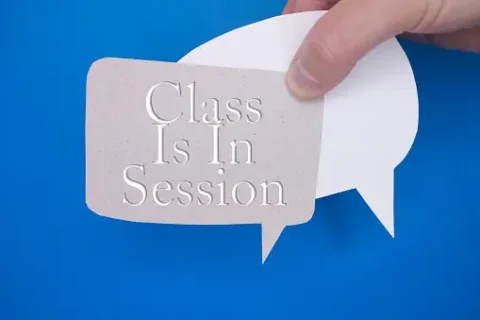A personal injury settlement occurs when a dispute over an injury claim is resolved outside of court, usually through negotiation between the injured party and the at-fault party’s insurance company. Settlements are advantageous because they save time and legal fees, providing quicker compensation for medical expenses, lost wages, and other damages. However, negotiating a settlement requires a clear understanding of your case’s value and the ability to advocate for your rights effectively.
The Importance of Calculating a Realistic Settlement Amount
Before engaging in settlement talks, calculate the full value of your claim. This includes both economic damages, such as medical bills and lost wages, and non-economic damages, such as pain and suffering. In some cases, punitive damages may also apply if the at-fault party’s conduct was particularly reckless.
Start by reviewing all your bills, receipts, and pay stubs to determine your financial losses. For non-economic damages, consider how the injury has affected your daily life and emotional well-being. Insurance companies often use formulas to estimate these damages, but don’t hesitate to advocate for a fair amount based on your unique circumstances. Having a clear number in mind provides a strong starting point for negotiations and prevents you from accepting a lowball offer.
Gather and Organize Evidence to Support Your Claim
Evidence is the backbone of a strong personal injury case. This includes police reports, medical records, photos of the accident scene, witness statements, and any other documentation that proves liability and the extent of your injuries. Organized and compelling evidence will demonstrate the legitimacy of your claim to the insurance adjuster.
Make sure your medical records connect your injuries to the accident. If necessary, obtain expert opinions from doctors or specialists who can testify about your condition and future medical needs. Also, consider creating a timeline of events leading up to and following the accident to provide a comprehensive view of the situation. A well-supported claim leaves less room for the insurance company to dispute or undervalue your case.
Hiring an Experienced Personal Injury Attorney
While it’s possible to negotiate a settlement on your own, hiring an experienced personal injury attorney can significantly improve your chances of a favorable outcome. Attorneys are skilled negotiators who understand the legal nuances of personal injury cases and can handle interactions with insurance companies on your behalf. A dedicated St. Louis injury lawyer, for example, can also help you avoid common pitfalls, such as undervaluing your claim or missing critical deadlines. Many personal injury attorneys work on a contingency fee basis, meaning they only get paid if you win your case. This arrangement allows you to access expert legal representation without upfront costs.
Understanding the Insurance Company’s Tactics
Insurance companies are not on your side—they are businesses focused on minimizing payouts. Knowing their tactics can help you negotiate more effectively. Common strategies include offering low initial settlements, downplaying the severity of your injuries, and questioning your account of the accident.
Be prepared to counter these tactics with facts and evidence. For example, if the adjuster claims your injuries are less severe than reported, provide medical records or expert testimony to refute their claim. Always remain professional and composed during negotiations, as losing your temper can undermine your credibility.
Timing Is Key: Knowing When to Settle
Timing plays a critical role in personal injury settlements. While it may be tempting to accept the first offer to get compensation quickly, doing so can result in settling for less than you deserve. It’s often wise to wait until you’ve reached maximum medical improvement (MMI) before negotiating. MMI occurs when your condition has stabilized, and your doctors can provide a clear prognosis.
Settling too early may leave you without compensation for future medical expenses or ongoing rehabilitation needs. Be patient and gather all necessary information about your recovery before finalizing a settlement. If the insurance company pressures you to settle quickly, remind them that you need adequate time to evaluate the full impact of your injuries.
Crafting a Strong Demand Letter
The demand letter is your opportunity to present your case to the insurance company in a clear, organized, and persuasive manner. It should outline the facts of the accident, the evidence supporting your claim, and the amount of compensation you are seeking. A well-crafted demand letter sets the tone for negotiations and demonstrates your seriousness about the claim.
Be sure to include specific details, such as dates, medical diagnoses, and financial losses. Use professional language and avoid exaggerations. A concise and factual letter increases the likelihood of the insurance company taking your claim seriously. Once submitted, be prepared for counteroffers and remain open to negotiation while firmly advocating for a fair settlement.
Staying Persistent During Negotiations
Negotiating a personal injury settlement often involves multiple rounds of offers and counteroffers. Stay persistent and do not feel pressured to accept an offer that doesn’t meet your needs. Remember, the initial offer is typically lower than what the insurance company is willing to pay.
Be prepared to justify your demands with evidence and remain firm in your position. If the insurance company refuses to offer a reasonable amount, consider escalating the claim by filing a lawsuit. The threat of litigation often motivates insurance companies to settle out of court to avoid additional legal costs.
Evaluating the Final Offer
When the insurance company makes a final offer, carefully evaluate it against your initial calculations and the evidence you’ve gathered. Consider consulting your attorney to ensure the offer adequately compensates you for all damages, including potential future expenses.
Take your time to review the settlement terms and ask questions if anything is unclear. Once you accept an offer, you typically waive your right to pursue further compensation for the same claim. Make sure you are fully satisfied before signing any agreements.
Negotiating a personal injury settlement can be a challenging process, but with preparation and persistence, you can achieve a fair outcome. Start by understanding the basics of your claim, calculating a realistic settlement amount, and gathering strong evidence to support your case. Recognize the tactics insurance companies use and stand firm in your demands.
Consider hiring an experienced personal injury attorney to guide you through the process and craft a compelling demand letter. Stay patient and persistent during negotiations, and thoroughly evaluate the final offer before accepting it. By following these expert tips, you can navigate the settlement process confidently and secure the compensation you deserve.

Daniel J. Morgan is the founder of Invidiata Magazine, a premier publication showcasing luxury living, arts, and culture. With a passion for excellence, Daniel has established the magazine as a beacon of sophistication and refinement, captivating discerning audiences worldwide.





